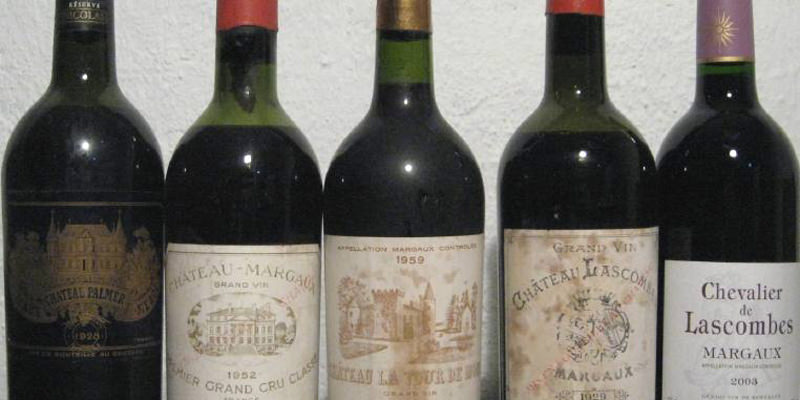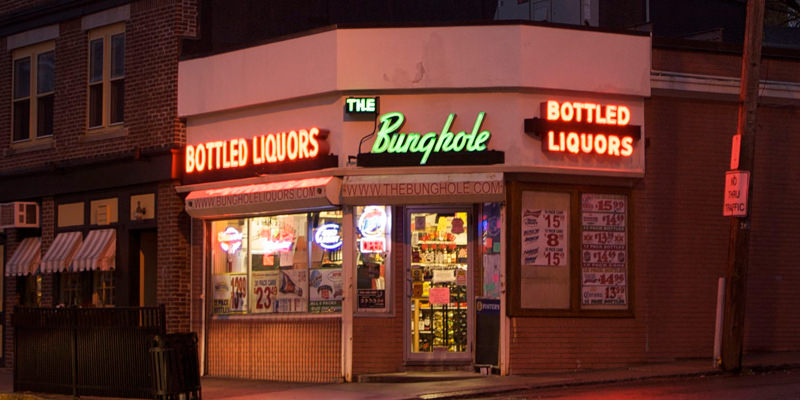It’s quite possible that you don’t think of the local liquor store as a place for purchasing fine wine – unless of course you live in a state where the liquor store is your only option. You probably prefer to discover higher-end bottles at specialty wine shops, from the wineries themselves, or even online.
And no one can really blame you for this. For the most part, liquor stores don’t have a great reputation for selling the bottles you’d want to hold on to for a few years, or ones you’d want to open for a special occasion. Instead, a liquor store has pretty much what you’d expect in any shop around the country: a majority of national brands, with relatively low prices and often not great quality. But some real gems can be found if you look hard enough, you just have to be willing to dig.
Like any other wine shop, it’s possible that in the history of the liquor store, the owner was at one point or another offered a case or two of really great Barolo, some classified Bordeaux or even coveted Burgundy. Perhaps this occurrence happened in 1995 and since then, those bottles have sat in a dark corner of the store, not even changing price since their original sticker was plastered on them, waiting for you to find them. Often these bottles are mixed in with the other, newer bottles in their category, or they could even be in a section all on their own. Just browse.
There are people who actually do this on the regular – they’re called dusty hunters or pickers – and they scour stores all across the country looking for great deals and forgotten bottles. And it’s pretty simple for you to be able to do this too, you just need to know how to assess the bottle, and be willing to take a risk.
That said, there are some risks that you’re taking no matter what you do, ones you can’t avoid even when making these assessments, such as the bottle being corked. But you can do your best to be informed before you make your purchase!
Storage
When you first walk into the liquor store, get a sense of how the bottles inside are being kept. Do they have direct light blaring down on them? Are they being stored standing upright? Is the store insanely hot or very cold? If you noticed any of these things, this could be an indication that no matter how awesome your ultimate discovery is, it is very possible something will be wrong with the wine, such as it being cooked or oxidized. However, noticing these things shouldn’t necessarily cause you to turn back, it’s still possible the wine could be good, but it’s worth taking note of and considering before you decide to purchase your discovered treasure.
Examine The Ullage
 The ullage in a bottle of wine is the space of air inside the bottle between the bottom of the cork, and the wine inside. In newer vintages, this space will be very small, and often pretty hard to see when the foil capsule is also covering the top. But as bottles age, either sitting in a cellar or on a liquor store shelf, it is natural that some of the wine inside will evaporate away, increasing the ullage, but it’s important that you take notice of just how much is missing.
The ullage in a bottle of wine is the space of air inside the bottle between the bottom of the cork, and the wine inside. In newer vintages, this space will be very small, and often pretty hard to see when the foil capsule is also covering the top. But as bottles age, either sitting in a cellar or on a liquor store shelf, it is natural that some of the wine inside will evaporate away, increasing the ullage, but it’s important that you take notice of just how much is missing.
Once you find your undiscovered bottle, hold it up to the light and examine its neck. If the ullage extends much below the shoulders of the bottle, especially if the bottle’s vintage is from the late eighties or nineties, this is possibly an indication that things are escaping too easily, and that means if too much wine can evaporate out, you can be sure that oxygen can get it.
Examine The Bottle’s Condition
It’s natural for there to be some general wear and tear from a bottle sitting on the shelf for over a decade, but make sure you don’t see any indication of water damage – which could be a bubbly label, or any sign of attempts to play with the cork.
In addition, if the cork’s head is popping out of the bottle you may want to think twice. The cause of a cork’s head starting to rise out of a bottle of wine is usually heat damage, which means the wine inside could very likely taste like stewed prunes.
Make Your Purchase
If everything looks good and and the price is right, make your purchase. Don’t worry too much about the vintage of the bottle – you’re at the liquor store, after all. Buy this to consume it, and you’ll have a really great experience trying older fine wine at a bargain price.

